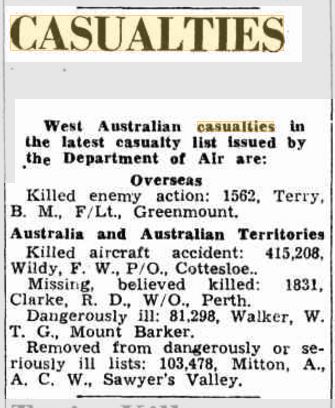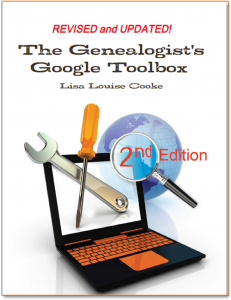What did your relatives experience during World War II? Look for answers with these step-by-step instructions for finding WWII newspaper content and tips for searching about the war progress in the 1940s.
We have covered so many gripping and inspiring World War II stories in recent months (such as this one), it makes me want to learn more about what happened to my own family. Newspapers are the first place I look for everyday news happenings. But for the 1940s, newspapers in the U.S. and some other places are still copyright-protected–meaning not so widely available online for free–and of course, millions of local newspaper pages are not digitized online yet.
Try these 3 steps for finding and accessing 1940s newspaper content:
 1. Understand what WWII newspapers may be available online
1. Understand what WWII newspapers may be available online
The major U.S. site for free digitized newspaper content, Chronicling America, recently started allowing post-1922 news, but it will take a while for copyright-cleared issues to post to the site (read more here.) Various state or local collections may vary; for example, the free Colorado Historical Newspaper Collection does have some WWII-era coverage.
Outside the U.S., Australia’s site Trove (which is free) does have digitized newspapers that include articles, like the 1942 casualty list from The Daily News (Perth), shown here. So do the overlapping British Newspaper Archive site and Findmypast.com’s British newspapers collection.
2. Explore premium and institutional databases for WWII newspapers
Start with digital newspaper content at free sites and subscription sites to which you have access. Then follow up with a trip to your local library, which likely offers additional historical newspaper databases. For example, in the U.S., these may include Access NewspaperARCHIVE, America’s GenealogyBank, America’s Historical Newspapers, America’s News, Newspaper Source, and ProQuest Historical Newspapers. Sometimes, you can access these databases from home with your library card log-in; if not, you’ll have to go to the library. (Genealogy Gems Premium members: check out Premium Podcast episode #125 for more great genealogical resources at public libraries.)
In the U.S., even these databases may only have limited coverage, such as titles from major cities for the 1940s. ProQuest Historical Newspapers has the Atlanta Constitution, Baltimore Sun, Boston Globe, Christian Science Monitor, New York Times, Wall Street Journal, and The Washington Post. Though these may not give you small-town details and perspectives on your own family, you will get a sense of the progress of the war from the perspective of those who were living through it, and how the public was responding.
3. Search for individual WWII newspapers
If you can’t find digitized content you want, widen your net. Search for titles of all active newspapers in your family’s city during the war. In the U.S., do that with the U.S. Newspaper Directory on Chronicling America. The same directory links to thousands of library holdings. WorldCat.org has even more; run a follow-up search here on any titles you don’t see holdings for on Chronicling America. If you’re local to where your family lived or can visit there, you may find copies at the public library. If you’re not local, you may have to try to order microfilmed copies through interlibrary loan. Ask your local Reference Librarian for assistance.
 Next, Google search for individual newspaper titles online. Though no longer actively digitizing and indexing newspapers, Google News Archive can help you locate online content for specific newspapers. Click here to access its alphabetical listing of newspapers. You can also enter keyword-searches in the search box on that webpage for all the newspapers listed there.
Next, Google search for individual newspaper titles online. Though no longer actively digitizing and indexing newspapers, Google News Archive can help you locate online content for specific newspapers. Click here to access its alphabetical listing of newspapers. You can also enter keyword-searches in the search box on that webpage for all the newspapers listed there.
As needed, run a follow-up Google search using the newspaper title, city, state, and date range; for the latter, use the format “1941..1945” with two periods between the dates and no spaces. This helps to filter your date range to these specific years.
Learn more about Googling your ancestors in newspapers, websites, books, photographs, and more in my book The Genealogist’s Google Toolbox.
What’s next?
 My book How to Find Your Family History in Newspapers is your ultimate guide to this topic, with tons of step-by-step instructions, online resources, and finding strategies. And, stay tuned for our up and coming post “Finding Family History in WWII Newspapers: Narrowing the Results” for more instructions on digitally searching WWII newspapers for war-related stories.
My book How to Find Your Family History in Newspapers is your ultimate guide to this topic, with tons of step-by-step instructions, online resources, and finding strategies. And, stay tuned for our up and coming post “Finding Family History in WWII Newspapers: Narrowing the Results” for more instructions on digitally searching WWII newspapers for war-related stories.





